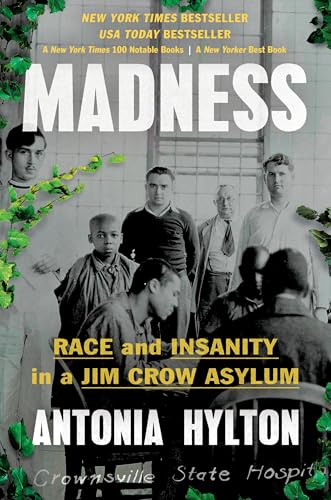Madness: Race and Insanity in a Jim Crow Asylum

For centuries, Black patients have been absent from our history books. Madness transports readers through the ninety-three-year history of Crownsville Hospital, one of the last segregated asylums with surviving records and a campus that still stands to this day in Anne Arundel County, Maryland. Antonia Hylton blends the intimate tales of patients and employees whose lives were shaped by Crownsville with a decade-worth of investigative research and archival documents. Madness chronicles the stories of Black families whose mental health suffered as they tried, and sometimes failed, to find safety and dignity. Hylton also grapples with her own family's experiences with mental illness, and the secrecy and shame that it reproduced for generations.
As Crownsville Hospital grew from an antebellum-style work camp to a tiny city sitting on 1,500 acres, the institution became a microcosm of America's evolving battles over slavery, racial integration, and civil rights. Hylton traces the legacy of slavery to the treatment of Black people's bodies and minds in our current mental healthcare system. It is a captivating and heartbreaking meditation on how America decides who is sick or criminal, and who is worthy of our care or irredeemable.
BUY THE BOOK
Community Reviews
See why thousands of readers are using Bookclubs to stay connected.